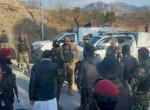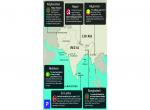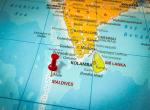Going by past experience, India’s latest initiative to engage Pakistan will not deliver the results it expects. The Government cancelled the Foreign Secretary level talks in August last year because the Pakistani High Commissioner in Delhi chose to meet the Hurriyat leaders in advance to mark the point that the “people of Kashmir”- whose true representatives in its eyes are those who contest India’s sovereignty over J&K and seek self-determination- are an interested party and should be included in a trilateral dialogue, a formula that India obviously rejects.
Pakistan takes the line that for it the Kashmir issue is not territorial; it is one of self-determination. When it intervened militarily in J&K in 1947, its intention presumably was not to forcibly grab J&K but seek self-determination for the Kashmiris even before UN Security Council resolutions were framed. When it sent its guerrillas disguised as locals into J&K in 1965 it was, again, with the noble intention to grant the Kashmiris self-determination. When it knowingly violated the legal position on the ground by extending the LOC from NJ9842 to the Karokaram pass- marking a clear territorial claim- its intention, again, was to grant the people of Kashmir who have no physical presence in this area, the right to self-determination. Its claim to Siachen is, of course, not territorial, but enshrined in the noble concept of self-determination for this desolate and unpopulated region. The Kargil aggression was the product of the same honourable yearnings. Pakistan’s vicious terror campaign in J&K since 1990, one that has cost the lives of both Hindus and Muslims in the state, has been motivated by the pure desire to give the right to the people of that state to determine their own future peacefully. If Prime Minister Nawaz Sharif and his Army Chief call Kashmir “the jugular vein” of Pakistan, it is clear that the territory is not vital to them because of fear that India’s control over it exposes Pakistan to the mortal danger of being choked to death, it is the plight of the poor Kashmiris whose jugular vein India has in its grip that gives sleepless nights to both.
After the cancellation of the FS level talks, Pakistan has said defiantly that it will continue to meet the Hurriyat leaders. It has insisted that because India broke off the talks, it is for India to take the initiative to resume them. The talks have to be unconditional, which means that India cannot demand that Pakistan must show progress on the terror front by, at a minimum, moving forward on the trial of those involved in the 2008 Mumbai terror attack. At the same time, Pakistani representatives, both official and non-official, have been exploring India’s mood and assessing its readiness to pick up the threads of the dialogue again. In their understanding, India used the Pakistani High Commissioner’s meeting with the Hurriyat as an excuse to call off the FS level talks. This rethink, they speculate, may have been prompted by elections in J&K, but with the elections there over, they have wondered whether India would now be ready to re-engage with Pakistan.
India has consistently demonstrated that however serious the provocations from Pakistan- whether infiltration, LOC firings, terrorism and military aggression- it will, after a spell of spurning dialogue, resume it unconditionally. Pakistan has integrated this lack of Indian resolve into its diplomatic strategy. It can therefore stick to its hardline positions, reject any concessions, keep stating that it is ready for a dialogue and keep placing the ball in India’s court, lobby with western powers to press India to re-engage, and keep tensions on the LOC alive to stoke their fears about the potential of an armed conflict between two nuclear armed neighbours.
Pakistan has used the US and the UK primarily to nudge India to resume the dialogue process after it is interrupted. Both oblige because they have US/NATO withdrawal from Afghanistan in good order in mind, the helpful role they want Pakistan to play in this and recognise the need to be responsive to Pakistan’s demands for some compensation at India’s expense for obtaining its cooperation. Currently, Nawaz Sharif’s supposed desire to normalise relations with India and the advisability of strengthening the hands of the civilian government against the country’s armed forces are used as arguments to press India to make an accommodative gesture towards the Pakistani Premier. The double speak of Pakistani diplomacy, India’s vulnerability to US influence and its enduring illusion that Pakistan’s own longer term self-interest will persuade its leadership to make peace with India explains the inadequacies and unsteadiness of our Pakistan policy.
True to form, we have once again reached out to Pakistan after an interregnum of six months. We have taken the precaution of giving the cover of SAARC to the latest initiative, and have also used the Cricket World Cup and public passion in South Asia for cricket as peg to blur its Pakistan focus. The strategy is to make it appear that this outreach to Pakistan is essentially to promote Prime Minister Modi’s SAARC vision and carry forward his specific proposals for launching a SAARC satellite, a SAARC business traveller card and so on, even as we concede that bilateral issues too will get discussed. But then, Pakistan has been, and is, the biggest hurdle in building SAARC as a robust regional organisation. It would hardly have any interest in promoting Modi’s vision as by doing so it will only be promoting India’s leadership of SAARC and diluting its own capacity to obstruct SAARC’s progress, as the cost of such thwarting will be increasingly seen negatively by India’s other neighbours. It will become increasingly difficult for it then to keep Afghanistan isolated from SAARC and prevent the development of India’s linkages with Central Asia.
The element of cricket diplomacy that has been introduced seems a little forced; its history, in any case, does not provide any assurance that our problems with those of our neighbours who are participating in the World Cup will become easier to resolve simply because of the common love of this game. This is especially true of Pakistan, in whose case cricket diplomacy has been an instrument of outflanking Indian political defences, going back to the days of Zia ul Haq.
Whatever our strategy in opening the door to Pakistan, the visit of FS to Islamabad will be for the time being within the framework of “talk about talks”. It could be argued that it will provide an occasion to gauge at first hand Pakistan’s willingness to progress on issues of India’s core concern and its outlook on how the relations can proceed towards normalisation in stages. But then, when Nawaz Sharif came to Delhi for Modi’s swearing-in and later when the two briefly inter-acted in Kathmandu during the SAARC summit, not to mention the assessments provided by the High Commissioners of the two countries based on their conversations in the respective capitals, as well as messages conveyed through informal channels, we should already have a fairly clear idea of expectations from each other. It is unlikely that anything really new at policy level will be conveyed to the FS at Islamabad. If a diplomatic breakthrough was being envisaged by Pakistan, we would already have received the signals. At best, re-engagement may induce Pakistan to resolve the outstanding MFN issue packaged as Non-Discriminatory Market Access.
If Pakistan had a change of course in mind, it would not have persisted in sending India negative signals since August last year. Nawaz Sharif has actually been doggedly aggressive on Kashmir after assuming office, declaring repeatedly his intention to bring the issue to the front burner, reviving Pakistan’s decades old position on UN resolutions and self-determination, making bellicose speeches at the UN General Assembly, ignoring the Simla Agreement, pleading for third party intervention, especially that of the US, and projecting Kashmir as the “jugular vein” of Pakistan, which suggests no room for compromise. When confronted with these facts, Pakistani representatives make no bones that Kashmir remains the core issue on which Pakistan will not compromise.
Pakistani forces have been firing across the international border in Jammu in particular in recent months to which India has responded robustly. Apart from accusing India of initiating the firings, Pakistan makes the usual demand of inviting UNMOGIP to investigate cease-fire violations, knowing India’s opposition to any UN role. Nawaz Sharif has not implemented his assurance that the trial of those responsible for the 2008 Mumbai terrorist attack will be expedited. He has not only put no curbs on Hafiz Saeed, he has allowed him to stage huge rallies at which jihad against India is openly advocated. Pakistan has been duplicitous about the UN ban on Jamaat ud Dawa as a terrorist group. To balance India’s accusations about Pakistani support for terrorism against it- which Pakistan denies- India is accused of supporting the Pakistani Taliban and the Baloch separatists. Elements in Pakistan, including in the government, even insinuate an Indian hand in the Peshawar school massacre. Pakistan is determined to raise the water issue with India contentiously despite the Indus Waters Treaty. It is bent on countering India’s legitimate interests in Afghanistan.
In recent weeks Nawaz Sharif’s National Security and Foreign Affairs Adviser, Sartaj Aziz, has excelled in hostile statements against India. President Obama’s successful visit to India has thrown Pakistan into tantrums when nothing against it was said during the visit, apart from an isolated reference that has figured in earlier joint statements too to punishing those accused of the 2008 Mumbai attacks, in which US nationals too were killed. Aziz has objected to US support for India’s permanent seat in the UNSC even when the formulation used in the joint statement makes no advance from previous ones. That Aziz should rail that this would be in violation of the United Nations Security Council resolutions on matters of international peace and security, such as the Jammu and Kashmir dispute and add that India “by no means qualifies for a special status in the Security Council”, reflects the depth of Pakistani antagonism towards India. He also fulminated against India’s membership of the Nuclear Suppliers Group (NSG), arguing that this discriminates against Pakistan and is a case of another country specific exemption that would undermine the credibility of the NSG, the fragile strategic stability in South Asia, while weakening the nonproliferation regime. He has castigated the Indo-US nuclear deal struck for “political and economic expediencies” for its detrimental impact on nuclear deterrence and overall balance in South Asia, projecting it as directed against Pakistan and therefore justifying his threat that Pakistan reserves the right to safeguard its national security interests. Aziz has inveighed against “India’s dangerous desire to create a space for war.” According to him, the dialogue process can only be advanced if talks are held on basic issues, which for Pakistan means Kashmir and water.
Aziz’s broadside re-affirms Pakistan’s obsession with parity with India. Any prospect of India getting enhanced international status has to be combated by Pakistan, notwithstanding the disparity between the two countries in physical, demographic, economic and military size. In private, Pakistani leaders accept these disparities and use the argument that India as the bigger and stronger country should be generous with Pakistan. Those in Pakistan, India and the West that purvey the line that the hands of the Pakistani civilian government should be strengthened by India against the country’s armed forces whose ideology remains the biggest obstacle in normalising India-Pakistan relations, should note that all these hostile statements have been made by the civilian leaders. In case they have been prompted by the military, then the messages being conveyed to India officially and unofficially that the Pakistani armed forces also now wants peaceful relations with India are deliberately misleading.
The US role in India-Pakistan relations remains murky. It prods India to resume the dialogue with Pakistan even as it buttresses Pakistan’s capacity to confront India. It does not want to weaken Pakistan to the extent of giving India a decisive upper hand in the dialogue because it wants India to make some concessions to Pakistan. The irony of the US position is that it rebuffs dialogue with leaders it dislikes, whether of Iran, Iraq, North Korea, Venezuela, Myanmar and Cuba. Its recent treatment of Putin’s Russia is instructive about its attitude towards dialogue when it doesn’t suit its strategy. During his visit, President Obama seems to have pressed Modi to resume contact with Pakistan. He would have promised Nawaz Sharif that he would do so as a form of balancing his decision to visit to India and not Pakistan. The US has become less reticent in publicly advocating an India-Pakistan dialogue. According to the US Deputy National Security Adviser Ben Rhodes, the pursuit of dialogue “is something that the United States has consistently supported, and we will continue to do so”. The US officials told the media before the visit that Obama would raise with Modi the issue of “how the two nuclear-armed neighbours can resume dialogue and reduce their hostilities”- which, unfortunately, equates India and Pakistan as nuclear powers and puts equal responsibility on both to “reduce hostilities”, ignoring the enormity of Pakistan’s terrorist provocations.
The unfortunate fall-out of our decision to resume FS level contacts with Pakistan despite consistently negative signals from that country is that it will be confirmed in its assumption again that even if the dialogue process is interrupted by India because of Pakistani provocations, India will resume dialogue eventually because it actually has no choice, its political psychology is fragile, temperamentally it prefers temporising, and that the international community will pressure it to do so because of persistent fears about a nuclear show-down in South Asia. It has long concluded that its intransigence strengthens its diplomatic hand.
Some well-informed Pakistanis close to military circles say that Pakistan has fears, however irrational, that India is still not reconciled to the creation of Pakistan and seeks to break it up. The military, they say, is willing to make peace but India should not try to rub its nose in the dirt, without being able to give an example that would justify this accusation. If all this true, Pakistan needs psycho-therapy, not diplomatic outreach.
Published Date: 23rd February 2015, Image source: http://vid.alarabiya.net
(Disclaimer: The views and opinions expressed in this article are those of the author and do not necessarily reflect the official policy or position of the Vivekananda International Foundation)









Post new comment